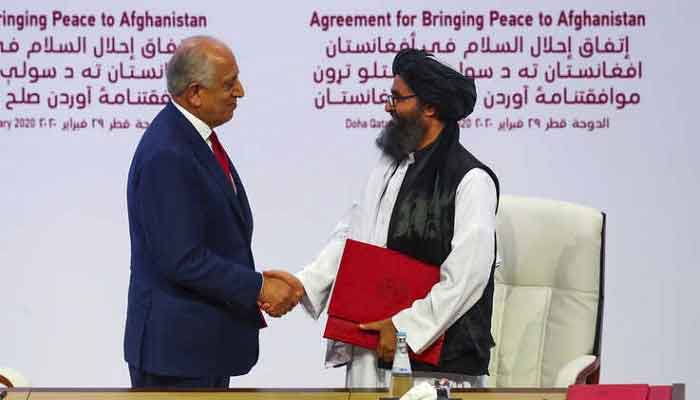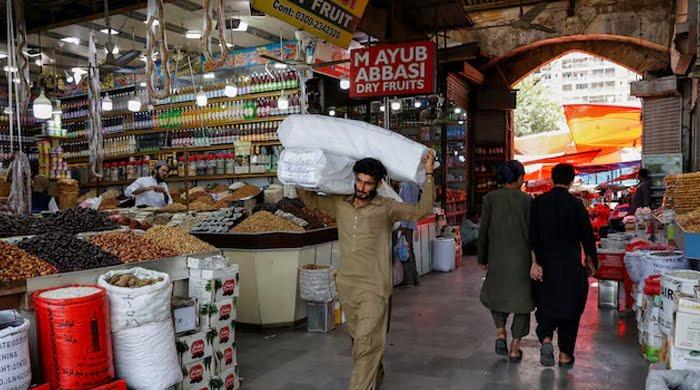Afghan peace process: The challenges and opportunities ahead
Hopefully, the Taliban have learnt their lessons and exhibit flexibility for a more inclusive political play
June 23, 2021

The moment of political reckoning has arrived in Afghanistan, with an opportunity to improve millions of lives in Central Asia, South Asia and the region. This is only possible if superpowers take a back seat and let the Afghan people and its neighbours balance things out.
As per the CNN, the Taliban have taken control over 50 out of 370 of Afghanistan’s districts since May. Bill Roggio of the Long War Journal estimates that half of the country’s districts are now contested between the government and the Taliban, with over 120 under government control and 70 held by the Taliban.
The setbacks in the field forced Afghanistan President Ashraf Ghani to replace his defense and interior ministers and the army chief of staff last week. The move comes just days before he embarks on a visit to the US to meet President Biden on Friday.
In a recent interview with a German weekly, Ghani said: “I know I am only one bullet away from death.” He added that it “is first and foremost a matter of getting Pakistan on board. The US now plays only a minor role. The question of peace or hostility is now in Pakistani hands.”
Pakistan’s Prime Minister Imran Khan has been a long-time advocate of a political solution in Afghanistan. Before coming to power, Khan held a famous anti-drone rally in Peshawar in 2013 at the height of US and allied forces' presence in Afghanistan.
Now, the Afghan situation presents Prime Minister Imran Khan and his government with a unique opportunity to reap the peace dividends for Central Asia and South Asia and the larger region.
Separately, President Biden is implementing a bipartisan decision to pull out of Afghanistan after around $1 trillion has been spent on the Afghan war in the last 20 years. The Doha agreement between the Taliban and US has given it face saving after assurances that the Taliban will not allow Al Qaeda to use Afghan soil for attacks on the US.
The Biden administration also realises Ghani’s government may not last long after the withdrawal of its troops and is pressing for a political settlement as well. In a congressional hearing, Lloyd Austin, the US Defense Secretary, on June 10 said that the ability of the US forces to provide field support to the Afghan security forces will be very limited after a withdrawal.
Mr. Austin also said that maximum focus will be to provide over the horizon counterintelligence support to thwart regrouping of Al Qaeda and any threat to American homeland security. Beyond that, the Biden administration is stressing on an intra-Afghan dialogue and a negotiated political solution.
As per a report by the US Congress released on June 11, 2021, the US Secretary of State has proposed to President Ghani the formation of a “transitional peace government,” including the selection of a new president “acceptable to both sides.”
The said proposal mentions possible changes to the Afghan parliament and provincial councils (in both cases by either adding Taliban members to the current bodies or suspending them during the transitional government); the creation of a new High Council for Islamic Jurisprudence to “review” legislation “to ensure compliance” with Islam; and the writing of a new Constitution by a 21-member commission.
The congressional report adds that the culmination of these US efforts was to be a “senior-level meeting” in Istanbul, Turkey in late April “to finalise an agreement,”. However, the Istanbul conference was postponed after the Taliban declined citing they will not participate in any conference till foreign forces are in Afghanistan.
For his part, President Ghani has proposed a presidential election within six months which he would not contest, as per media reports.
The Afghan political solution has a critical bearing on the nearly 40 million Afghanis and the 75 million population of Central Asian countries. Unfortunately, even after the Americans spent $1 trillion in Afghanistan, nearly half of the Afghan population still lives below the poverty line.
In the future, the Taliban will face a challenge of political acceptability, as concerns remain about their democratic and human rights policies.
But hopefully, the Taliban have learnt their lessons and exhibit flexibility for a more inclusive political play and are tolerant to accept others' political point of views as well.











